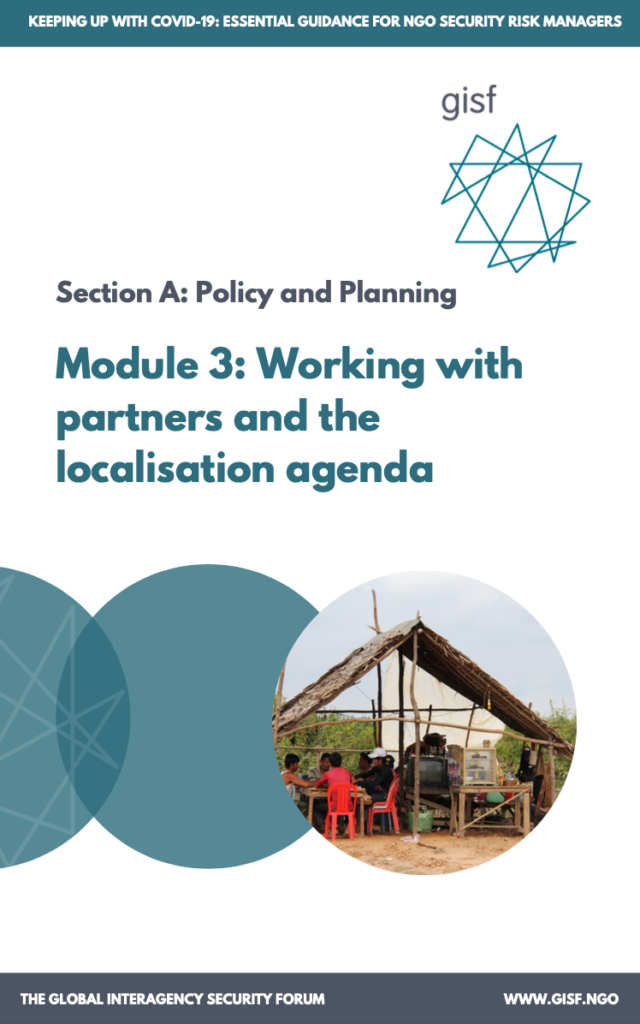Module A3: ‘Working with partners and the localisation agenda’ is in Section (A) ‘Policy and Planning’ of our three part series ‘Keeping up with COVID-19: Essential guidance for NGO security risk management’.
The COVID-19 pandemic has – by necessity – partially advanced the localisation agenda by creating a unique opportunity for local civil society to lead on aid programming in places where international aid organisations evacuated international employees and/or locked down national staff. While the COVID-19 pandemic has shown how critical local organisations are to the effective delivery of aid, this is not a new revelation. But while many international organisations rely on local partners to access hard-to-reach populations, research by GISF and others has shown that this transfer in responsibility for implementing programming has not been accompanied by honest conversations about the transfer of security risks, nor by adequate support to local actors to manage these risks.
The guidance shared in this module is relevant for partnerships during the pandemic but also for partner organisations operating in contexts that may be slowly emerging from COVID-19 emergency settings. The guidance must be adapted to the partnership, the organisations involved, the context, and the needs of each partner.
This module was written by Adelicia Fairbanks (Independent Consultant and Research Associate at Humanitarian Outcomes), based on a literature review and consultations with Fadi Halisso (Basmeh & Zeitooneh), Armstrong Maina (PSI), Peter Ott (Trócaire), and Abby Stoddard (Humanitarian Outcomes).
